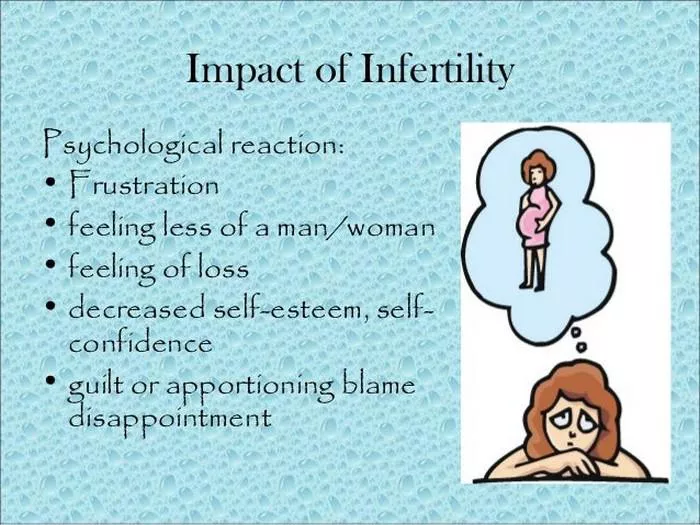Infertility is a complex and multifaceted issue that can be influenced by a myriad of factors, including hormonal imbalances, structural abnormalities, genetic predispositions, and lifestyle choices. In recent years, there has been growing interest in understanding the potential impact of stress on fertility. While stress is a normal part of life, its effects on reproductive health have sparked debate and speculation. In this article, we’ll explore the question: can stress cause infertility?
Understanding Stress: The Body’s Response to Pressure
Stress is the body’s natural response to external pressures or demands, triggering a cascade of physiological and psychological reactions. Just as a pressure cooker builds up steam when subjected to heat, the body releases stress hormones such as cortisol and adrenaline in response to perceived threats or challenges. While acute stress can be a temporary and adaptive response, chronic or prolonged stress can have detrimental effects on overall health and well-being.
The Stress-Fertility Connection: Unraveling the Puzzle
The relationship between stress and fertility is complex and multifaceted, with researchers exploring the potential mechanisms underlying this connection. Just as a tangled web of wires can disrupt the flow of electricity, chronic stress may disrupt the delicate balance of hormones and neurotransmitters involved in the regulation of reproductive function. Stress hormones such as cortisol can interfere with the production and release of reproductive hormones, potentially disrupting ovulation in women and sperm production in men.
Stress and Menstrual Function: Impact on Ovulation
In women, chronic stress has been linked to irregular menstrual cycles and ovulatory dysfunction, which can affect fertility. Just as a malfunctioning clock can disrupt a schedule, disruptions in the menstrual cycle can hinder the timing of ovulation and decrease the likelihood of conception. High levels of stress may also affect the quality of cervical mucus, making it more difficult for sperm to reach and fertilize the egg. While stress alone may not cause infertility, it may contribute to difficulties in conceiving by disrupting the normal functioning of the reproductive system.
Stress and Male Fertility: Effects on Sperm Quality
In men, chronic stress has been associated with changes in sperm quality and quantity, which can impact fertility. Just as a factory operating under stressful conditions may produce lower-quality goods, chronic stress may lead to decreases in sperm concentration, motility, and morphology. Stress can also affect the production of testosterone, the hormone responsible for sperm production, further compromising male fertility. While the exact mechanisms underlying the stress-sperm relationship are still being studied, there is evidence to suggest that stress can have negative effects on male reproductive health.
The Role of Lifestyle Factors: Interplay with Stress
It’s important to note that stress does not exist in isolation but often coexists with other lifestyle factors that can impact fertility. Just as a healthy diet and regular exercise can help mitigate the effects of stress on overall health, adopting lifestyle habits that promote well-being can also benefit reproductive health. Conversely, unhealthy coping mechanisms such as smoking, excessive alcohol consumption, or poor nutrition can exacerbate the negative effects of stress on fertility.
Addressing Stress: Coping Strategies and Support
While the link between stress and infertility is still being explored, managing stress levels can be an important aspect of optimizing reproductive health. Just as a sailor navigates choppy waters with a sturdy vessel and a reliable compass, individuals and couples can employ coping strategies such as mindfulness, relaxation techniques, exercise, and social support to help mitigate the effects of stress on fertility. Seeking support from healthcare professionals or mental health counselors can also provide guidance and support in developing healthy coping mechanisms.
Conclusion:
In conclusion, while stress may not directly cause infertility, it can certainly impact reproductive health and fertility outcomes. By understanding the potential effects of stress on the body and implementing strategies to manage stress levels, individuals and couples can take proactive steps to optimize their chances of conceiving. While stress management alone may not resolve fertility challenges, it can contribute to overall well-being and resilience in the face of adversity. By acknowledging the interplay between stress and fertility and taking steps to address both, individuals can navigate the journey to parenthood with greater confidence and resilience.
[inline_related_posts title=”You Might Be Interested In” title_align=”left” style=”list” number=”6″ align=”none” ids=”1720,1723″ by=”categories” orderby=”rand” order=”DESC” hide_thumb=”no” thumb_right=”no” views=”no” date=”yes” grid_columns=”2″ post_type=”” tax=””]























